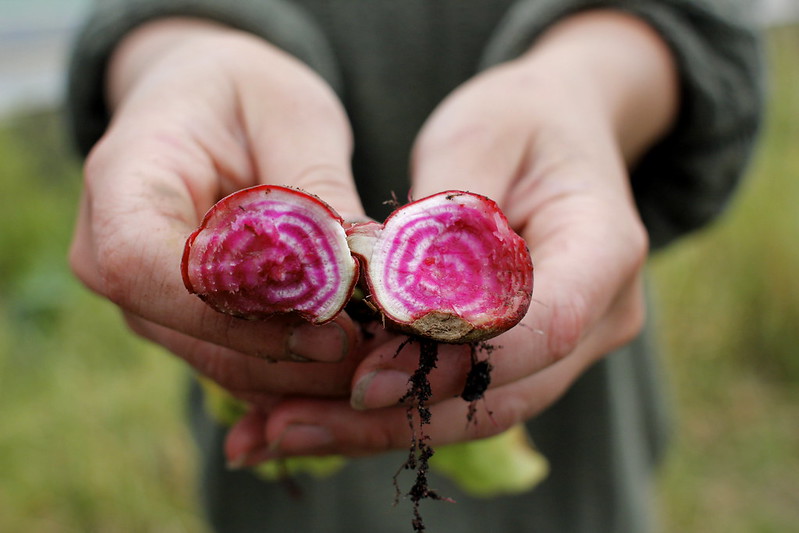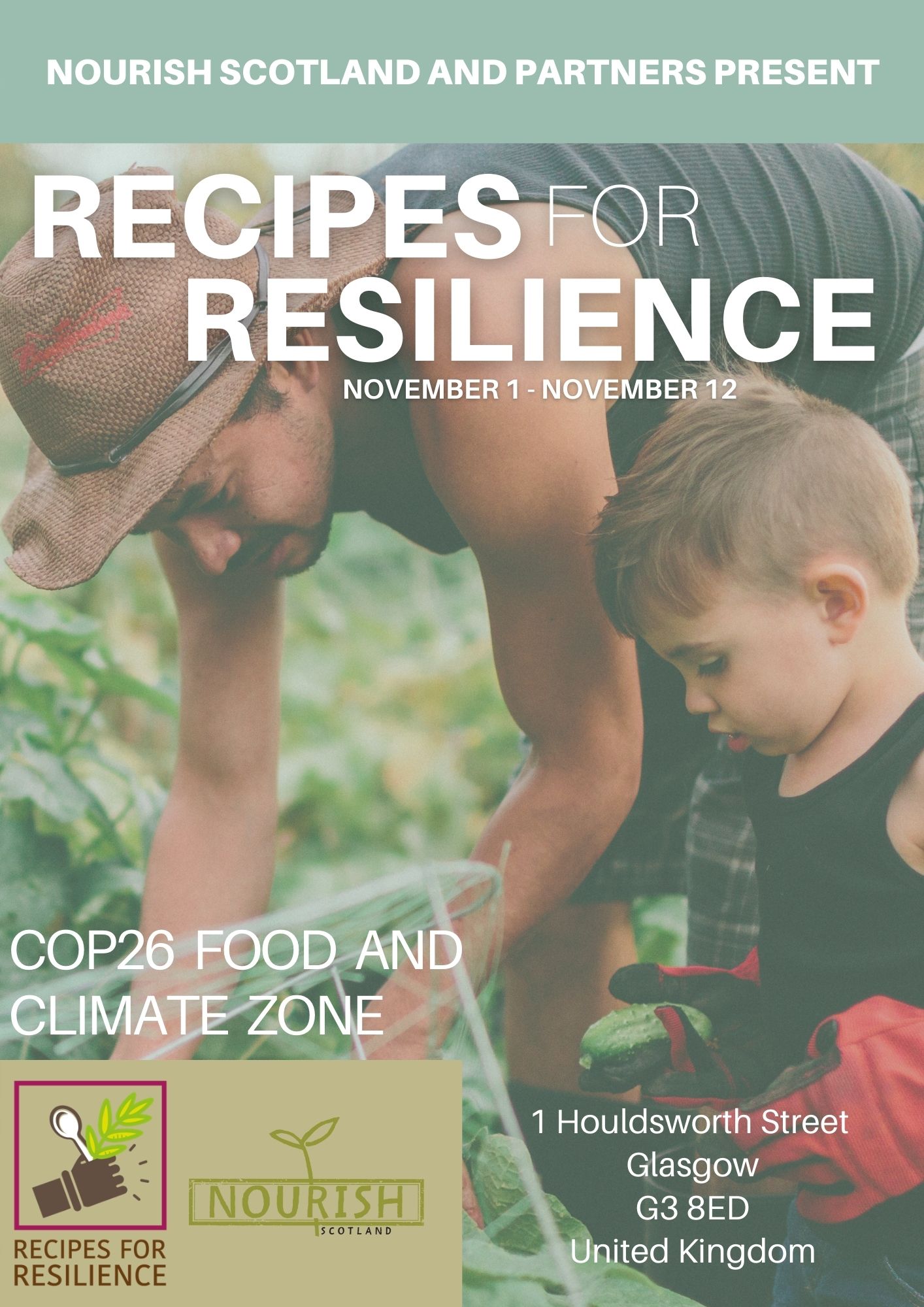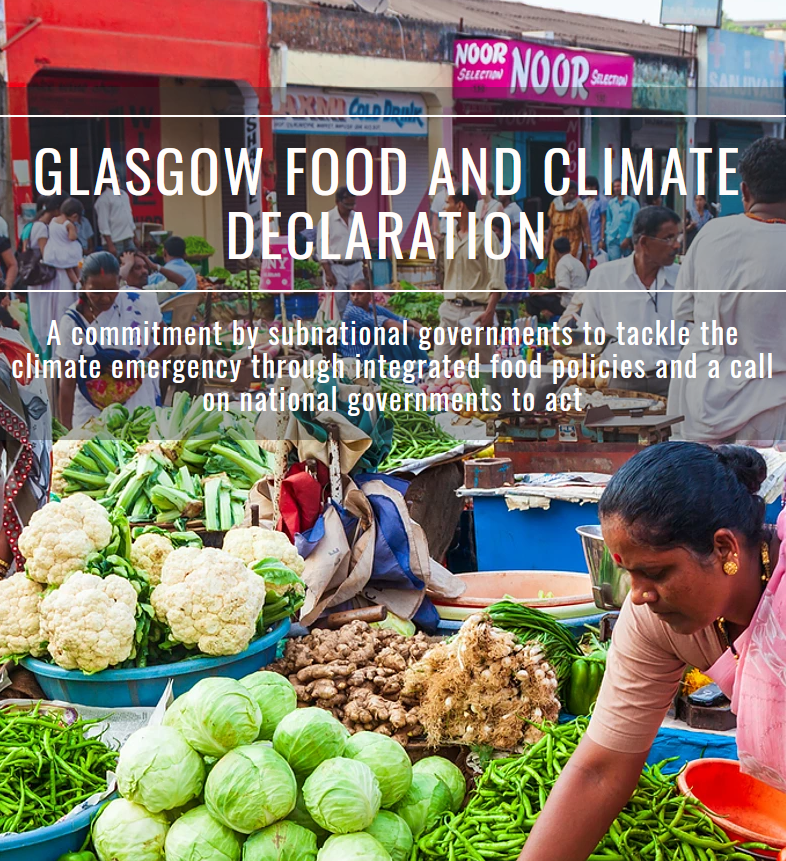Food systems at COP26
In November 2021 the 26th UN Climate COP in Glasgow will face the monumental task of bridging the gap between countries’ current climate commitments and the significant transformation needed to tackle the climate emergency. The food system currently accounts for a third of total green house has emissions. Therefore, the road joining Glasgow to Paris (and the important goal of limiting warming to 1.5 degrees) must go through the farm gate and involve all those who produce and consume food for a just transition.
COP26 is an important opportunity for Scotland and other states, cities and regions to demonstrate leadership on climate change action, and for cities and farmers to come together for a dialogue on what healthy and ecologically sound food systems look like.
Join us alongside our partners across national and local governments, civil society and farmers organisations to place food and food systems at the centre of the COP!
Join the food and climate space at COP
Together with our partners we are bringing to life a 12-day zone dedicated to food and climate during COP26.
Date: November 1-12
Location: Salvation Army
Address: 1 Houldsworth Street Glasgow G3 8ED United Kingdom
Distance to main COP campus: 15 min
Recipes for Resilience will highlight the importance of food systems within climate conversation through a dynamic variety of panels, screenings, hands-on events and community engagement.
For more information on how your organisation could be involved, contact Marlana at marlana@nourishscotland.org.uk.
If you’d like to volunteer to support the delivery of the event, or to help the food and climate agenda in other ways, please register your interest and we will be back in touch shortly.
The Glasgow Food and Climate Declaration
While national governments hold many of the levers for change, the sub-state actors have significant ability to shape the food systems. Their actions can contribute to tackling the climate emergency, with co-benefits for biodiversity, culture, health and farmers livelihoods. The Milan Urban Food Policy Pact, C40, ICLEI and many others connect cities working on sustainable food issues. Here in the UK, 60 cities are part of the UK’s Sustainable Food Places Network and, more locally, Scotland is part of the Under 2 Coalition.
Since early 2020 IPES-Food and Nourish Scotland have led a partnership to draft a Declaration with subnational governments and kick-off a process aimed at moving local actors and integrated food policies to centre stage.
The Glasgow Food and Climate Declaration is the outcome of this process. It brings together subnational governments of all sizes with a pledge to accelerate the development of integrated food policies as a key tool to tackle the climate and nature emergencies and a call on national governments to act.
Fork to Farm Dialogues: Building local relationships for healthy and resilient food systems
As cities, regions and other sub-state actors set ambitious climate change targets, including on food, it must be remembered that these decisions increasingly affect primary food producers, many of whom already struggle to make ends meet in current markets while facing the most disruption to their livelihoods from the climate emergency itself. It is in the interest of both cities and farmers to achieve a just transition in food and farming: securing sustainable food for cities and a sustainable future for producers.
The COVID-19 pandemic has shown how exposed our food systems are to shocks. Because of strict lock-down rules across the world, producers are finding it hard to get the labour, inputs, parts and maintenance they need to maintain production. The situation is particularly dire for those countries that rely on imports for basic food and for many poor urban people who have lost their livelihoods, have no place to stay and do not have savings to draw from during these difficult times.
This has highlighted the importance of local food policies to strengthen the resilience of our communities and that a ‘just transition’ to greener and healthier food systems must include a dialogue with both commercial and subsistence farmers, whose voices to date have often been absent from the discussion on climate change.
The Fork to Farm Dialogues will bring together representatives of diverse farming communities, cities, states and regions providing space for constructive dialogue on food and climate change, improving mutual understanding of each other’s ambitions and circumstances, and building new connections and partnerships. The dialogues will take place in over fifteen different countries. The learning from these dialogues will then structure a Global Dialogue at COP26 and will be showcased through an interactive exhibition.
Learn more about our Fork to Farm Dialogues in our project website.


